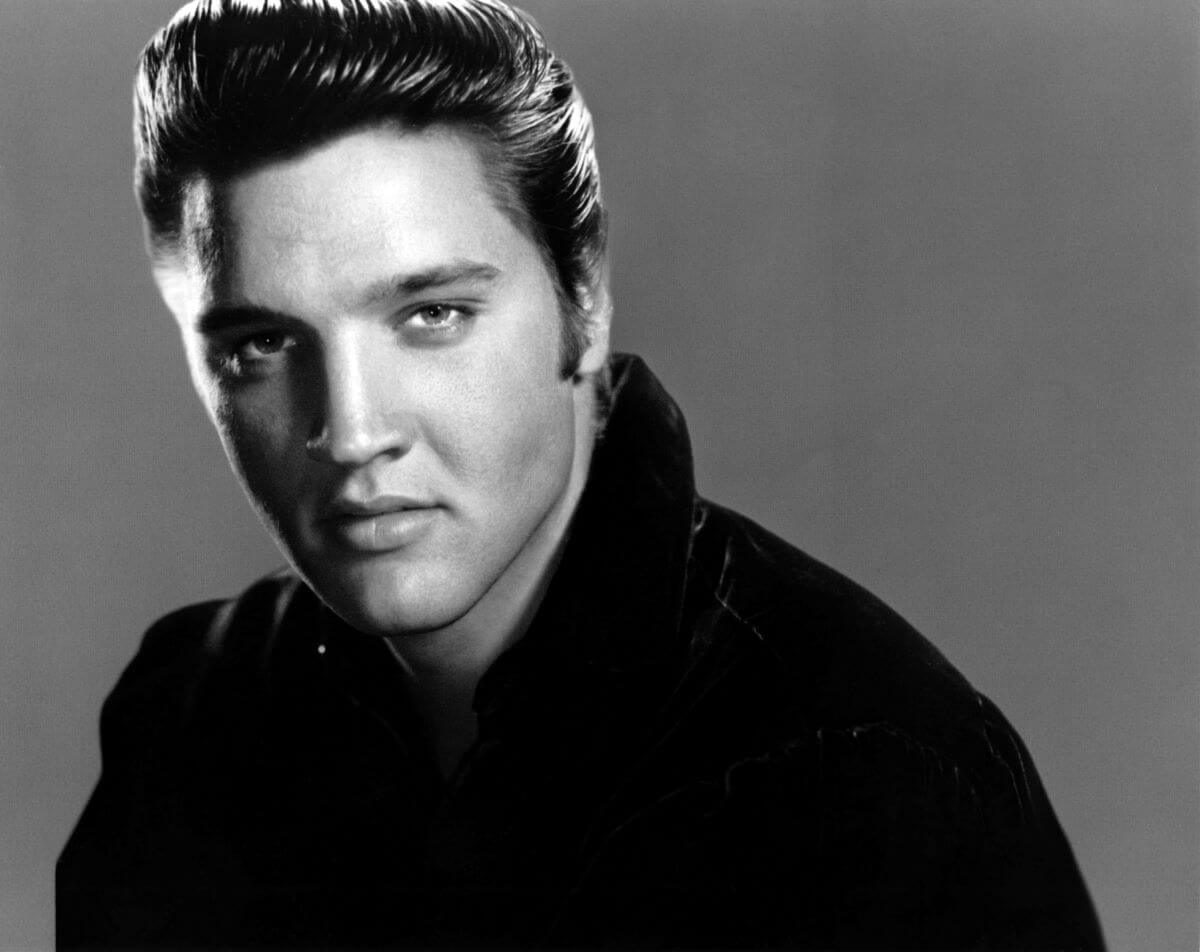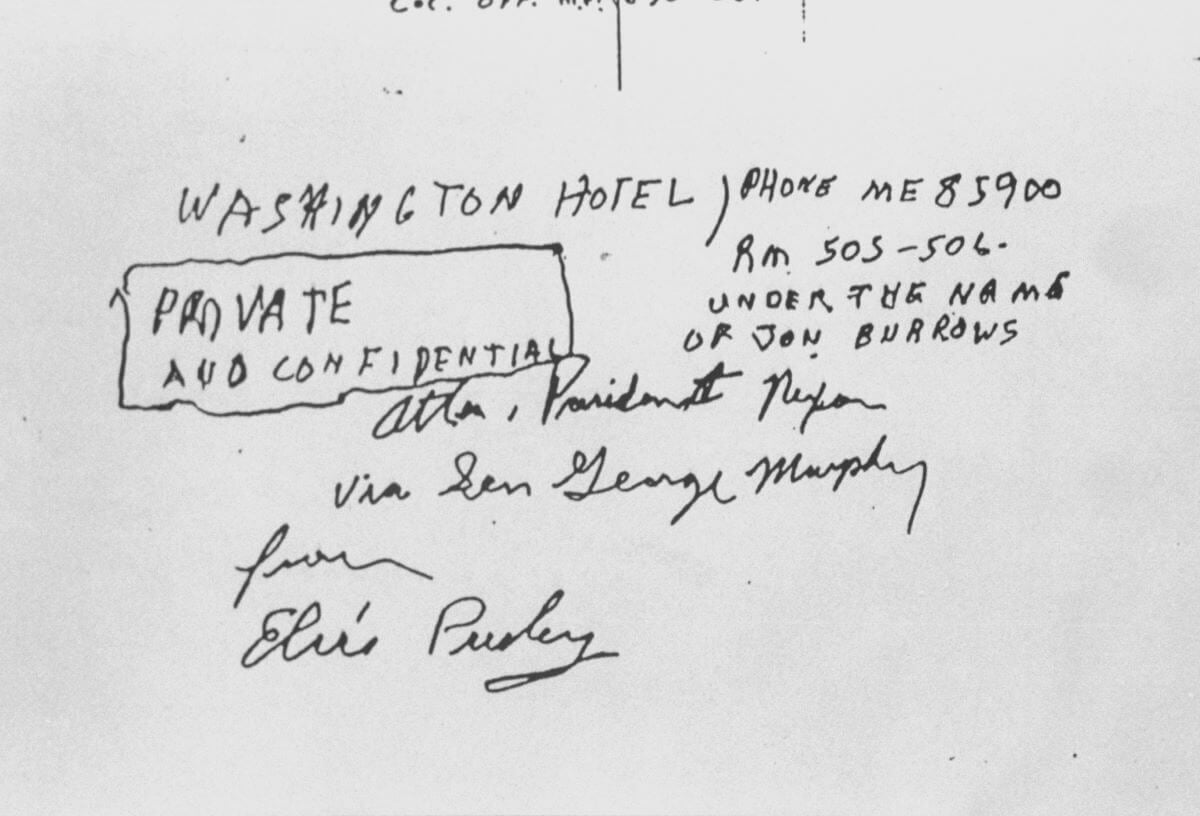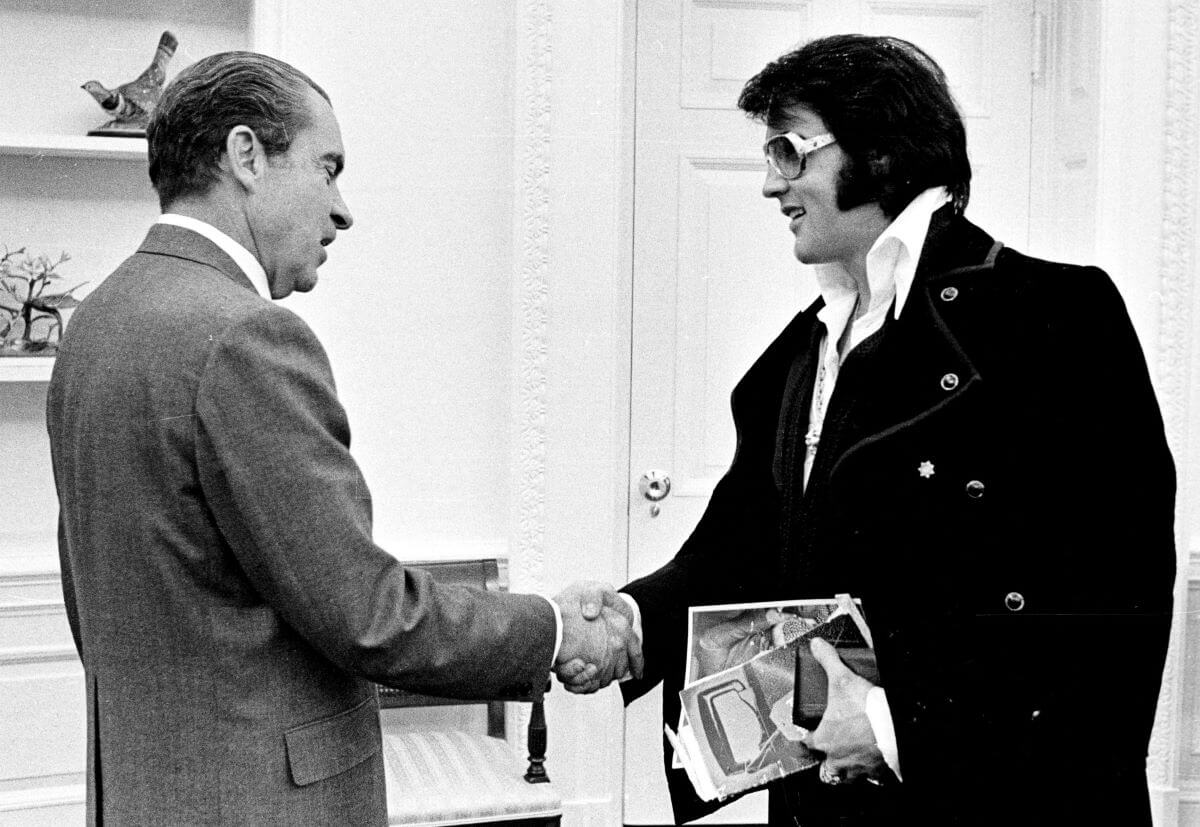
Elvis Nearly Wept When He Didn’t Get a Federal Narcotics Badge
In 1970, Elvis Presley traveled to Washington, D.C., with one goal in mind: to get a badge from the Bureau of Narcotics and Dangerous Drugs. He was a collector of various law enforcement badges and believed that this would be the pinnacle of his collection. He also thought it would afford him new authority. When he learned that his request had been denied, he almost broke down in tears.
Elvis desperately wanted a badge from the Bureau of Narcotics and Dangerous Drugs
When Elvis arrived in D.C., he delivered a note at the White House requesting to meet with President Richard Nixon. Soon after, he went to a meeting with the Deputy Narcotics Director John Finlator. Here, he requested a badge from the bureau.

“Elvis was an avid badge collector,” Priscilla Presley wrote in her book Elvis and Me. “He had detective, police, and sheriff badges and the narc badge represented some kind of ultimate power to him. In Elvis’ mind, that badge would give him the right to carry any prescribed drug he had on his person. The badge would also give Elvis and his Memphis Mafia the right to carry arms. With the Federal Narcotics badge, he could legally enter any country both wearing guns and carrying any drugs he wished.”
Unsurprisingly, Finlator denied the request, which devastated Elvis.
“Jerry [Schilling] was surprised at Elvis’ emotional state,” Priscilla wrote. “He sounded near tears when he said, ‘He won’t let me have the badge.'”
Elvis eventually got the badge he was seeking
Schilling was able to lift Elvis’ mood by telling him that Nixon had agreed to meet with him. During the meeting, Elvis spoke about his unique ability to connect with people and hoped he could help lower rates of drug use among young people. He also hoped the narcotics badge would help him with this. In the letter he had written the president, Elvis had mentioned wanting the badge.
“I would love to meet you,” he wrote, per Smithsonian Magazine. “I will be here for as long as it takes to get the credentials of a federal agent.”

Elvis mentioned it again in the meeting, and Nixon agreed, to the musician’s delight.
“In a surprising, spontaneous gesture,” Nixon aide Egil Krogh wrote, “[Elvis] put his left arm around the President and hugged him.”
The badge was an honorary one
So, was Elvis able to leave the Oval Office and carry guns and drugs into any country he wanted? Not at all. The badge did not actually afford him any of the power he’d hoped it would. It was purely decorative.
“[Elvis] believed he had some authority, which he did not have,” White House Secret Service Agent Clint Hill said, per People. “He had no power of arrest or any legal authority whatsoever. [But] he went away happy.”
Priscilla also took note of this happiness.
“By the time he left the Oval Office, he had added this most important badge to his collection,” she wrote. “He emerged smiling, a different Elvis from the one who a few hours before was emotionally upset.”


